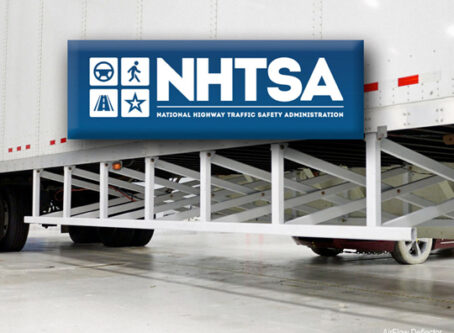Appeals court reverses $6M judgment against Swift in driver ‘poaching’ suit
A federal appeals court ruled in favor of Swift Transportation, finding the carrier legally hired about 250 drivers from CRST Expedited, reversing a $6 million verdict in a lower court.
On Aug. 6, a panel for the Eighth Circuit U.S. Court of Appeals reversed a verdict from a federal court in Iowa awarding CRST $6 million. Phoenix-based Swift is being accused of poaching newly trained drivers from Cedar Rapids, Iowa-based CRST. Recently, a similar case also heard by the Eight Circuit returned a ruling that runs counter to the Iowa district court’s ruling, forcing the appellate panel to return that verdict.
The lawsuit stems from CRST’s training program. According to court documents, CRST advances the cost of training in exchange for the driver’s agreement to enter into a driver employment contract. The company spends up to $35 million a year on the training program.
Although the driver contract is an at-will employment relationship that can be terminated by either party at any time, the driver must perform services for CRST for six to 10 months at a reduced apprentice-level wage rate to compensate for the training costs. During that time, a driver cannot provide truck driving services to any CRST competitors.
Meanwhile, Swift was hiring drivers using generalized advertisements. Swift was offering a uniform pay scale based on experience as well as tuition reimbursement for trained drivers who documented their training costs. Drivers were to provide previous employment and training during the recruiting process.
Whenever a CRST driver still under contract applied for the job, Swift would automatically receive a “contract notice” informing it that the driver was still under contract and that CRST would not release that driver from the contract. Typically, Swift would stop the hiring process there. However, Swift began to hire drivers under another contract in August 2016, regardless of receiving a contract notice. Swift would pay that driver a standard rate, which was higher than CRST’s apprentice-level wage.
CRST filed a lawsuit, claiming Swift’s “poaching” practice violated Iowa law for intentional interference with prospective economic advantage, intentional interference with contract and unjust enrichment. The district court rejected Swift’s defense that the noncompete contracts are invalid restraints of trade under Iowa law for purposes of an interference with contract claim.
A jury sided with CRST, ordering Swift to pay $3 million for interference, $7.5 million for unjust enrichment and $5 million in punitive damages. However, the judge wiped out the unjust enrichment award and lowered punitive damages to $3 million, leaving Swift to pay CRST $6 million.
Swift appealed the verdict.
Intentional interference in poaching drivers
To establish a claim for intentional interference with an existing contract, the plaintiff must show that it meets five criteria:
- Plaintiff had a contract with a third party.
- The defendant knew of the contract.
- The defendant intentionally and improperly interfered with the contract.
- The interference caused the third-party not to perform, or made performance more burdensome or expensive.
- Damage to the plaintiff resulted.
However, Swift can cause a third person to discontinue an existing contract that can be terminated at will when hiring drivers if it does not employ wrongful means and the purpose is at least in part to advance its interest in competing with the other. On the other hand, different rules apply when a noncompete clause is included. In that situation, Swift might induce the driver to quit his or her job but cannot engage the driver to work for the company in an activity that would mean violating the noncompete clause.
Using the same theory it used in a similar case against TransAm, CRST argued that Swift breached the driver’s noncompete contract.
Additionally, CRST claimed that interfering with the contract just to compete in the marketplace is intentional and improper interference. However, in the TransAm case, the Eighth Circuit denied CRST’s argument that “any prospective employer offering terms it knows are better than an employee’s fixed-term contract with his present employer commits tortious interference with that contract.”
In the Swift case, the district court denied Swift’s motion to dismiss solely because the company’s motive in hiring contract drivers was to engage in competition by hiring drivers who had noncompete contracts by offering higher pay. However, that reasoning is contrary to the TransAm ruling, which focuses on intentionally and improperly causing an employee to violate a noncompete agreement. Consequently, the Eighth Circuit had to reverse the verdict against Swift.
Rather than simply remand the case back to the lower court, the Eighth Circuit decided to reverse with instructions to dismiss the case entirely. LL
Related stories:









